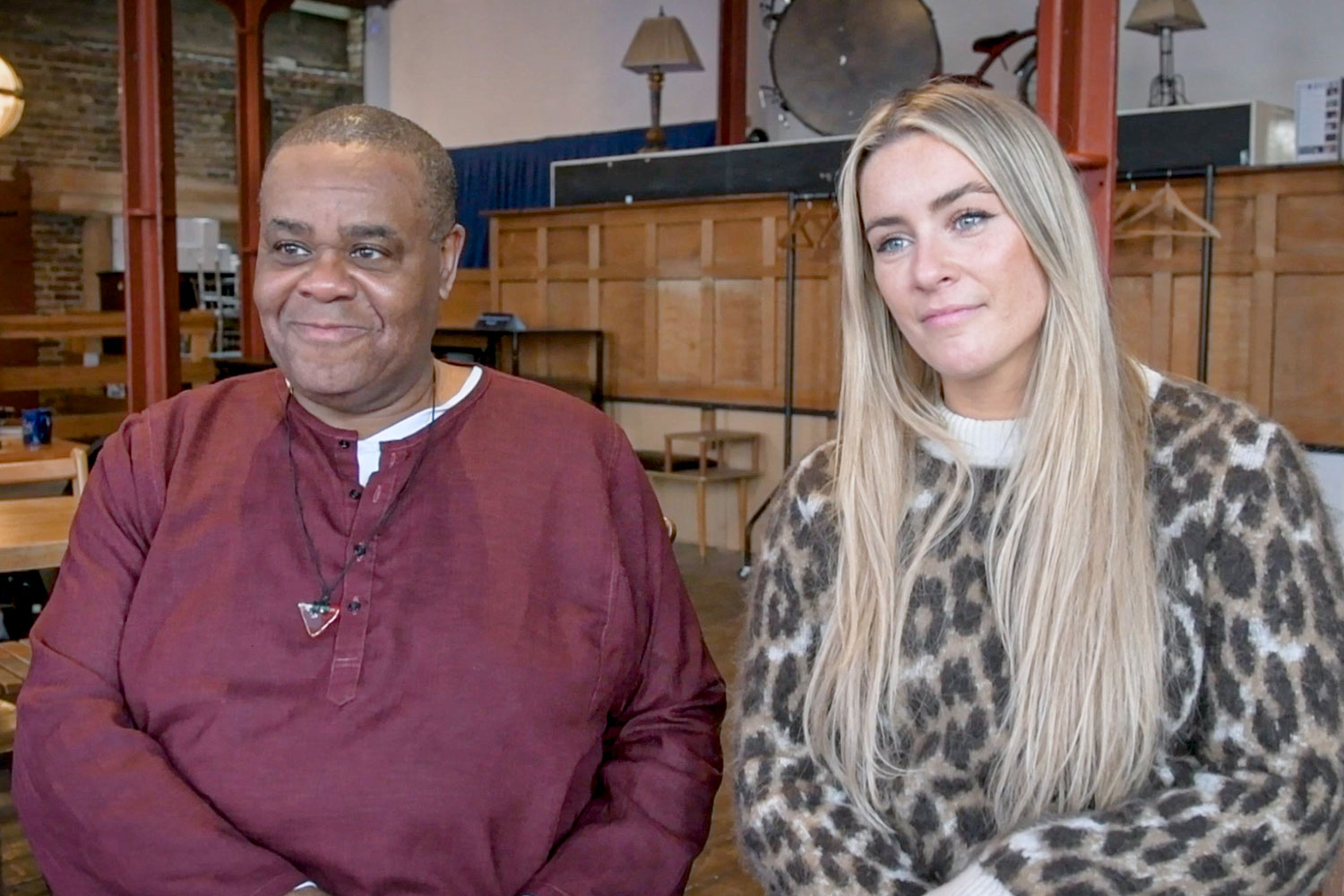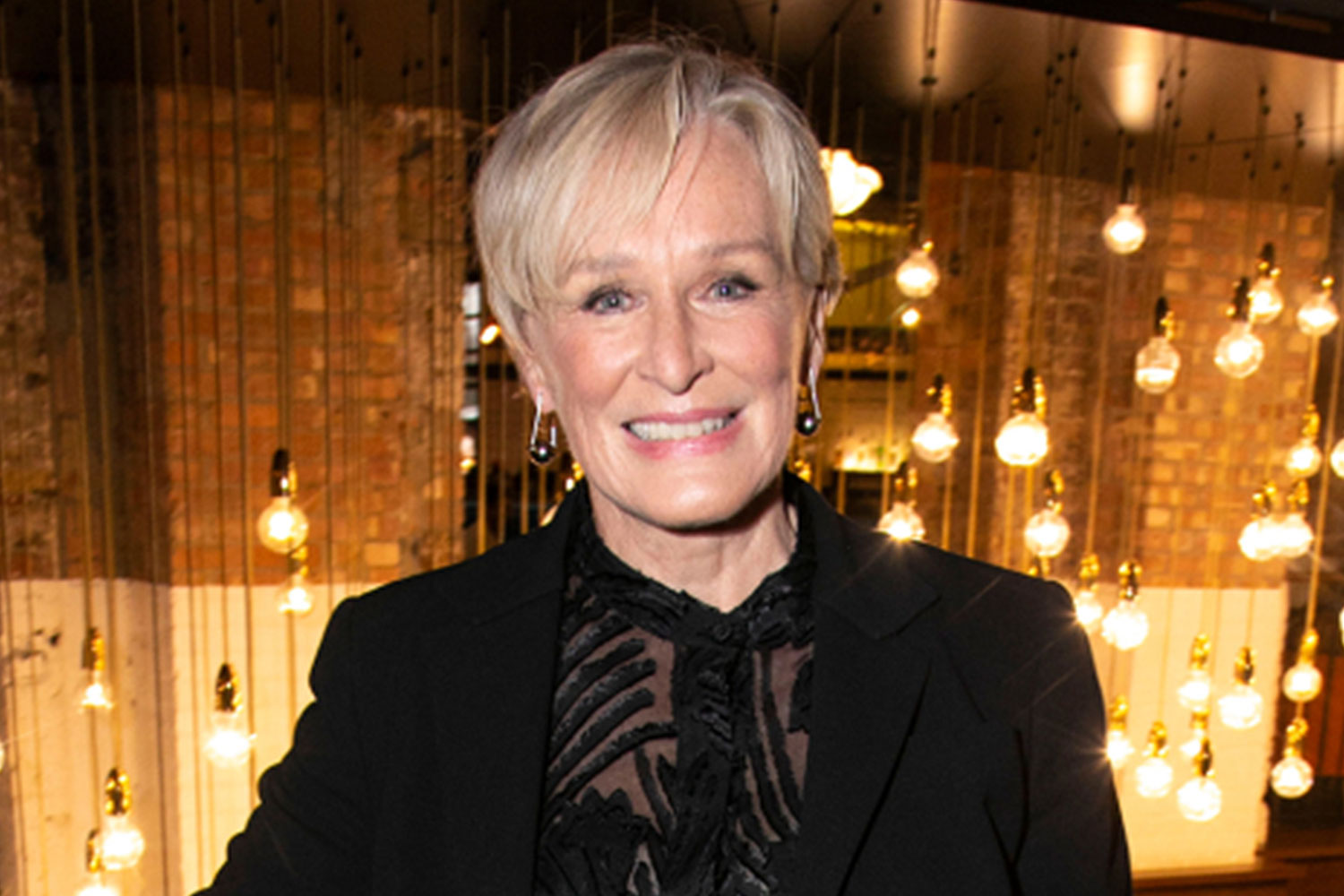Stones in His Pockets
“People don’t go to the cinema to be depressed, that’s what theatre’s for.” So says Clem Curtis, the director of the million dollar movie The Quiet Valley, but if Stones in His Pockets is anything to go by, he couldn’t be more wrong.
This uplifting and entertaining story details the effect of a film crew’s descent on a rural village in Kerry. The locals become extras, each one star-struck and dreaming of the big time.
There’s Jake, Charlie who fancies himself as a screenwriter, Old Mickey who’s famed as one of the last surviving extras from The Quiet Man, as well as numerous others who interact with the crew and cast, among them Caroline Giovanni, the starlet with an ear for fancy earrings if not accents. But, for the villagers, the novelty of earning £40 a day plus grub turns stale when reality strikes, shaking them from their fantasy and forcing all to question their values.
Marie Jones‘ script is sharp and witty; most importantly she never patronises her characters. Through the guise of comedy, Jones explores the conflict between new and old worlds, technology and tradition, morality and vanity.
Against Jack Kirwan‘s economical set, Ian McElhinney has directed the piece so cleanly that each character transformation is smooth and seamless. The soundscape of Irish tunes adds to the atmosphere without drowning or distracting from the performers.
Rupert Degas and Hugh Lee share all the roles between them. While Degas has transferred with the London production from the Duke of York’s and Lee has arrived fresh from the UK tour of Stones, the camaraderie between the two is such that you’d think they’d performed together for this remarkable show’s entire run.
The greatest challenge of such role juggling is to differentiate clearly while retaining truth. Lee does this wonderfully effectively. His renditions of Old Mickey and the posturing production assistant Aisling are a sight to behold – it’s hard to believe it’s the same performer. Degas does well too, his Scotch security man-come-gorilla being a real crowd pleaser. It’s only in his portrayal of the glamorous Caroline that he stumbles into the realms of cliche.
But this is a small price to pay for two hours of captivating and intelligent entertainment whose many accolades are the Whatsonstage.com, Olivier and Evening Standard Awards for Best Comedy. If you go and see Stones, you’ll understand why.
– Hannah Kennedy
NOTE: The following review dates from October 2002 and this production’s earlier run at the West End’s Duke of York’s Theatre.
From its humble origins, debuting unostentatiously in Belfast in 1999 and then quietly appearing at Kilburn’s Tricycle for two runs before it transferred to the West End, Stones in His Pockets has gone on to become a worldwide hit, translated into 16 languages and even appearing on Broadway.
In London, it has now clocked up a run of 1,000 performances (commemorated on 16 October 2002) and counting. But even as it has gone on to make a bigger noise, the joy of it is that it remains, at heart, a little show, but it’s a little show with a big heart.
And there’s another paradox: that though its plot is about filming – specifically, about a big Hollywood movie being made on location in Ireland – it’s actually a celebration of theatre and play acting in its leanest, most stripped-back possibilities. All you need to make theatre, someone once said, is two planks and a passion; and playwright Marie Jones and director Ian McElhinney take this literally, with just two actors and a virtually bare stage to animate an entire army of actors, extras, directors, assistants and the like that populate the crew of the film being made.
Of course, that’s another reason for it’s longevity: it’s cheap to put on. (When the show transferred from the New Ambassadors to the Duke of York’s, one of the producers was quoted as saying that all the show needed was a car to move it). But it doesn’t short-change you: this is as full a theatrical experience as you can ever have. Moreover, it’s one where the audience themselves complete the imaginative leap that brings the world of the play to life: it’s an act of storytelling at its best.
Finally, the pleasure is about seeing two virtuoso actors totally inhabiting a diverse array of characters; and invariably, these have been the kind of working actors who aren’t accustomed to the starring spotlight, either. Rupert Degas and Brian Doherty are the latest in the succession of mostly unknown and mostly Irish actors who are now bringing it to life; and they do it with graceful charm and wonderful versatility. Here’s to the next 1,000 performances!
Note: The following review dates from April 2000. The cast has changed since the writing of this review. For current cast details, please see the Stones in his Pockets listing entry.
What happens when a Hollywood film crew moves in on a rural Irish village to shoot its next blockbuster? All hell breaks loose, of course, and, in Marie Jones’ new play, it does so to extraordinarily hilarious and yet touching effect.
‘The Quiet Valley’ is the film in question and County Kerry the setting. There’s not much left of the farming industry that has traditionally sustained the village, so when a Hollywood studio shows up offering £40 a day for extras to populate the background of their celluloid Irish tale, the locals bend over backwards to appease. But just how far are they willing to kow-tow?
The story calls for a huge cast of characters – from the hapless extras to the big-screen stars, director, assistant director and miscellaneous cameramen, riggers and locals – but, incredibly, the company of real-life, on-stage actors numbers just two. With little more for props than a trunk on wheels and a row of discarded shoes, Conleth Hill and Sean Campion, under the assured and fast-paced direction of Ian McElhinney, manage to flesh out the entire spectrum of distinct personalities, as well as their principal characters Charlie and Jake, two down-at-heel Irish lads who are looking for a reason to keep hoping for something better.
Hill won Best Actor prize in the Irish Theatre Awards for his performance, and the accolade is well-deserved. From the opening, he’s confident as Charlie, seemingly carefree in the face of adversity, but it’s a subtle performance. It’s not until he becomes Hollywood sex symbol Caroline that you fully appreciate Hill’s remarkable range. With lifted chin and a self-conscious toss of non-existent long locks, he’s totally convincing – and deliciously over-the-top – as the spoilt starlet, right down to the speech rhythms. The sight and sound of this talented Irish actor playing an American actress trying – and failing – to effect an Irish accent is particularly side-splitting.
Campion, too, is magnificent, transforming himself through expert body language into characters as diverse as a coquettish and nubile runner, a crack addict and stooped veteran Mickey, the wonderfully outspoken ‘last surviving extra from The Quiet Man.
The laughter becomes tinged with sadness in the second act, following the suicide of a local boy, and some serious questions are raised – particularly about the role that movies and imagination play in disillusionment and about Hollywood’s responsibility to the communities it portrays.
Stones in his pockets leaves you with plenty to think about, and plenty to smile about to. A finale that includes a two-man Irish jig to rival Riverdance and a resumption of hope ensures that you won’t leave disappointed.










